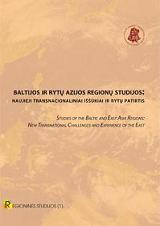National and Ethnic Minorities in Poland According to the Census of 2002 and its Influence on the Polish Legislation Concerning Minorities
National and Ethnic Minorities in Poland According to the Census of 2002 and its Influence on the Polish Legislation Concerning Minorities
Author(s): Marcin GońdaSubject(s): Essay|Book Review |Scientific Life
Published by: Vytauto Didžiojo Universitetas
Keywords: immigration; minorities; Poland; imigracija; mažumos; Lenkija
Summary/Abstract: The present article focuses on two important issues. First, the paper concentrates on the national structure of the Polish society in the light of the results of the census of 2002. Another issue that will be addressed here is the influence that the census had on the legislation concerning minorities. Implementation of The National and Ethnic Minorities and Regional Language Act has stirred up many controversies. However, it seems that the Act is a compromise between the position of minorities and the majority. It confirmed the position of the “old” minorities and created a system protecting their rights. However, there are groups (e.g. Silesians or Kashubs) who aspired to achieve the minority status but they were not recognized as such. Their demands where based on the outcome of the 2002 national census in which both communities proved to be among the most numerous ones. They tried to use the absence of a precise definition of a national/ethnic minority. Since the Act was put into practice in 2005, they lost their hopes. Nevertheless, the issue of Silesians and Kashubs proved that the phenomenon of ethnic identity is still alive. On the other hand, it was a sign of new times; the Polish country is no longer nationally homogenous. Awareness of this problem is especially important when the Polish society faces such new challenges as mass immigration.
Journal: Regioninės studijos
- Issue Year: 2006
- Issue No: 1
- Page Range: 65-80
- Page Count: 16
- Language: English

